🧵Thread🧵
Do you *really* remember the Hunter Biden laptop story? I fear we’ve lost the plot.
With Hunter’s name in the news I wanted to revisit the extent to which the media went to cover up corruption allegations against—and at the behest of—his father.
Follow along. ⤵️
Do you *really* remember the Hunter Biden laptop story? I fear we’ve lost the plot.
With Hunter’s name in the news I wanted to revisit the extent to which the media went to cover up corruption allegations against—and at the behest of—his father.
Follow along. ⤵️
You have to start with the scoop from @nypost and @EmmaJoNYC.
Their lede from October was damning:
“Hunter Biden introduced his father, then-Vice President Joe Biden, to a top executive at a Ukrainian energy firm less than a year before the elder Biden pressured government officials in Ukraine into firing a prosecutor who was investigating the company.”


Their lede from October was damning:
“Hunter Biden introduced his father, then-Vice President Joe Biden, to a top executive at a Ukrainian energy firm less than a year before the elder Biden pressured government officials in Ukraine into firing a prosecutor who was investigating the company.”
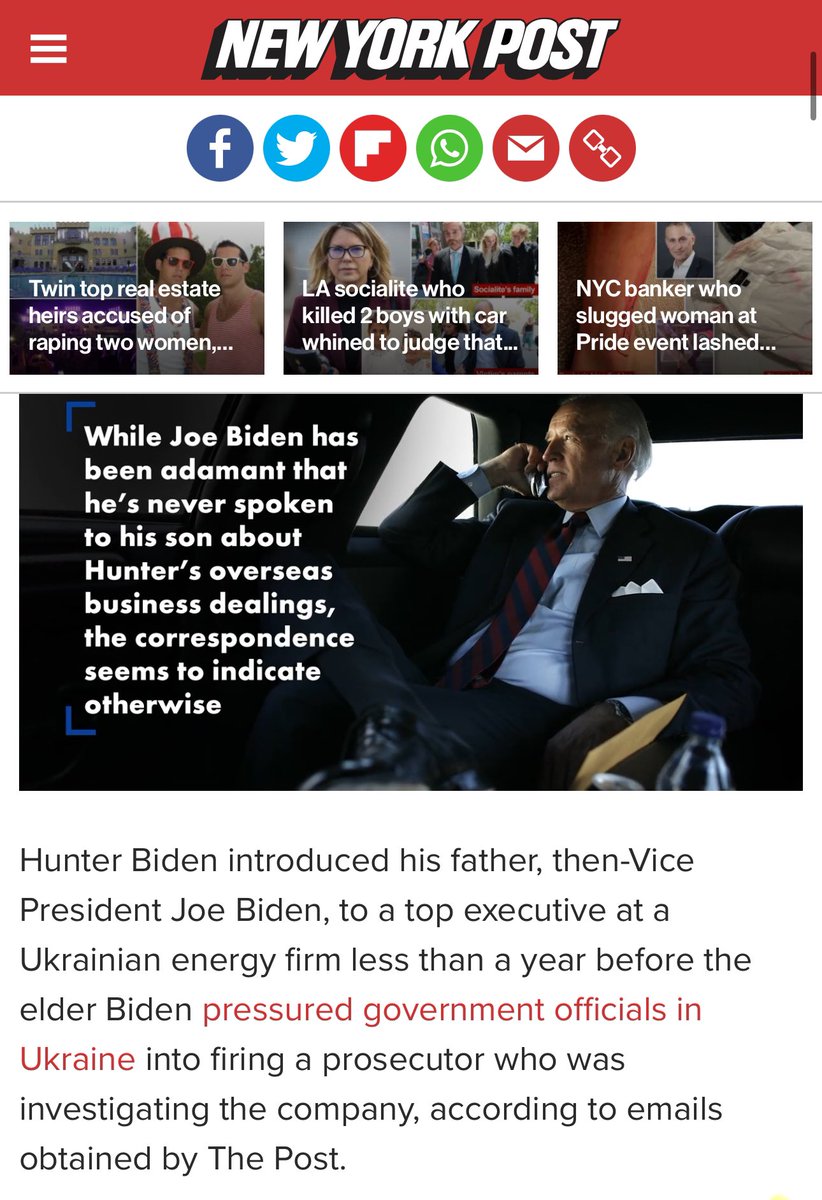


The story was fundamentally about Joe Biden’s alleged corruption. It was huge news, on the eve of an election.
The press leapt to claim the scoop wasn’t legit. And they reframed the issue: now it was about Hunter, not Joe. Here’s @NPR before/after


The press leapt to claim the scoop wasn’t legit. And they reframed the issue: now it was about Hunter, not Joe. Here’s @NPR before/after


Social media companies then blocked all sharing of the article, something outlets held up as evidence of the supposed weakness of the Post’s piece. The logic was circular.
Here’s @washingtonpost applauding the move.


Here’s @washingtonpost applauding the move.


But the story really turned when @politico claimed the reporting was “Russian disinformation,” according to supposed “experts” who mostly went on a hunch (and partisan intentions, more on that soon).






That was the starting gun for the rest of the press, who climbed over one another to repeat the thinly sourced claim. Here’s @pbsnewshour, @BostonGlobe, @HuffPost and @BusinesInsider








It was a mainstream media blackout.
More of the same from @CNN (@brianstelter), @TheEconomist (this takeaway is…something), @TIME and @thehill (who were better thereafter)




More of the same from @CNN (@brianstelter), @TheEconomist (this takeaway is…something), @TIME and @thehill (who were better thereafter)




One of my favorites was this @CNN clip.
“Classic textbook Soviet Russian tradecraft at work” according to ol’ James Clapper.
“Classic textbook Soviet Russian tradecraft at work” according to ol’ James Clapper.

Speaking of verbosity, apparently @washingtonpost forgot the first rule of editing: strive for clarity.
Is this clear to you? Not to me.
Is this clear to you? Not to me.

This @NPR public editor tweet really epitomizes the sentiment. “We don’t want to waste our time on stories that are not really stories.”
Care to revisit?
Care to revisit?

@AP, would you like to revisit these “red flags” and “puzzling” account claim?
I’m not sure they’ve held up. Piece is still live on your website.



I’m not sure they’ve held up. Piece is still live on your website.



Does @NPR really want to get into a debate about how an outlet’s funding sources could potentially influence coverage?
Also, did they ever apologize to @EmmaJoNYC? Maybe I missed it.



Also, did they ever apologize to @EmmaJoNYC? Maybe I missed it.

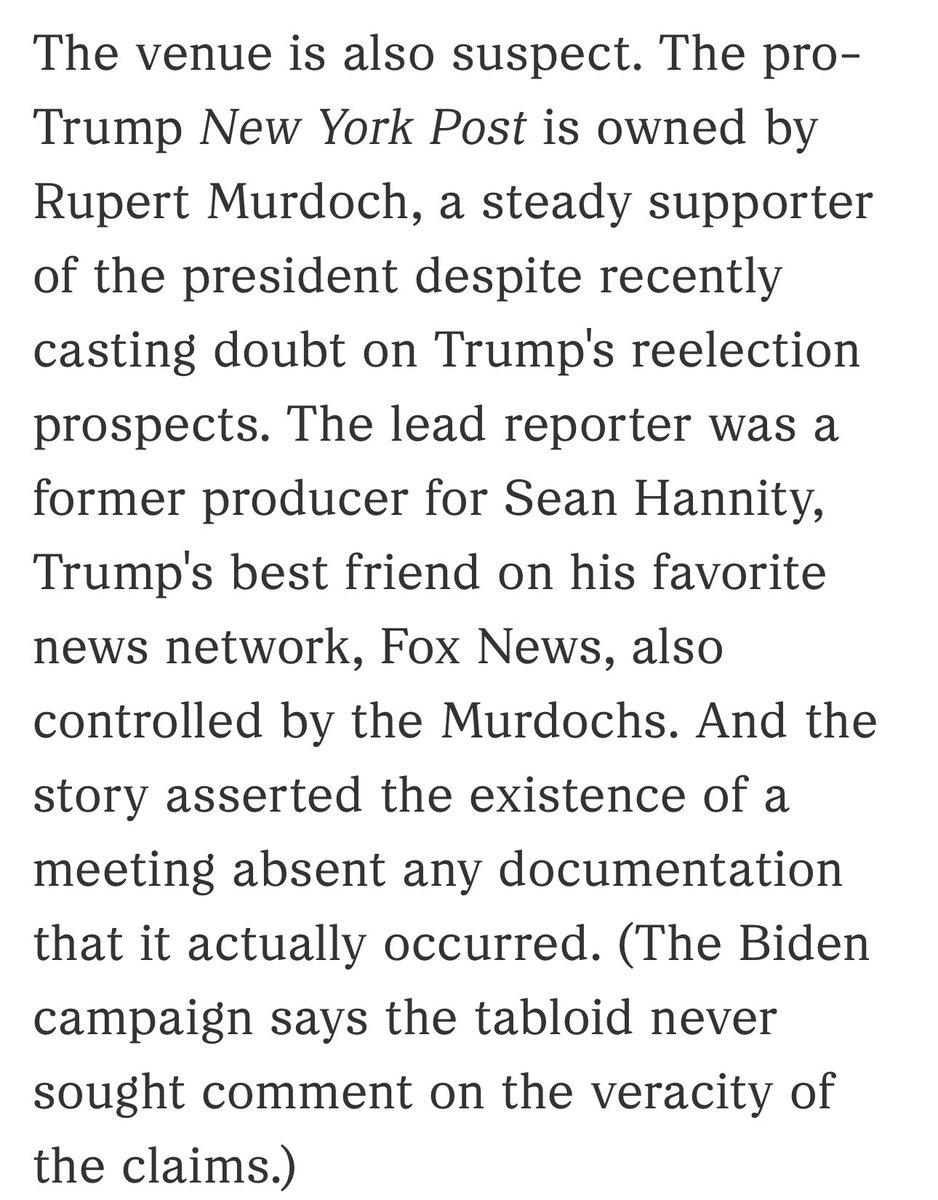

And of course the smartest people on the internet weighed in. Here’s @jrpsaki, @brhodes, @jonathanchait and @atrupar








Even those outlets who didn’t want to hang their hat on the letter repeated the innuendo. Here’s @nytimes waxing poetic about “Mr. Giuliani’s campaign to undermine Mr. Biden” that supposedly lacked substance.


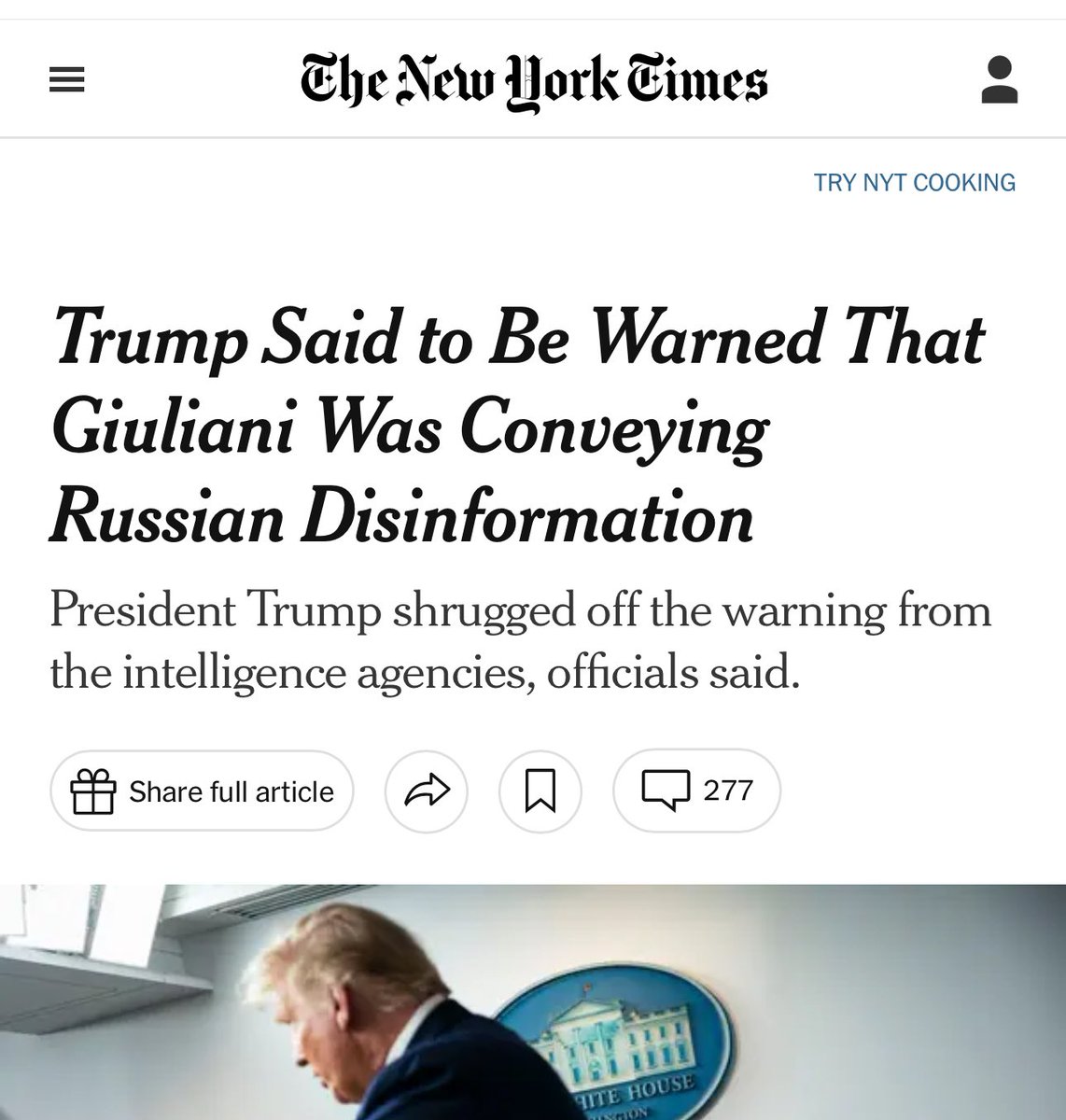

But the fiction didn’t hold up long. Apparently, the FBI knew all along that the laptop was Hunter’s and claims of Russian malfeasance were bogus. (H/t @FoxNews)






@nypost, to their credit, kept beating the drum on their scoop. Every passing days makes clearer that they were over the target.
Hats off to them for their journalism.



Hats off to them for their journalism.
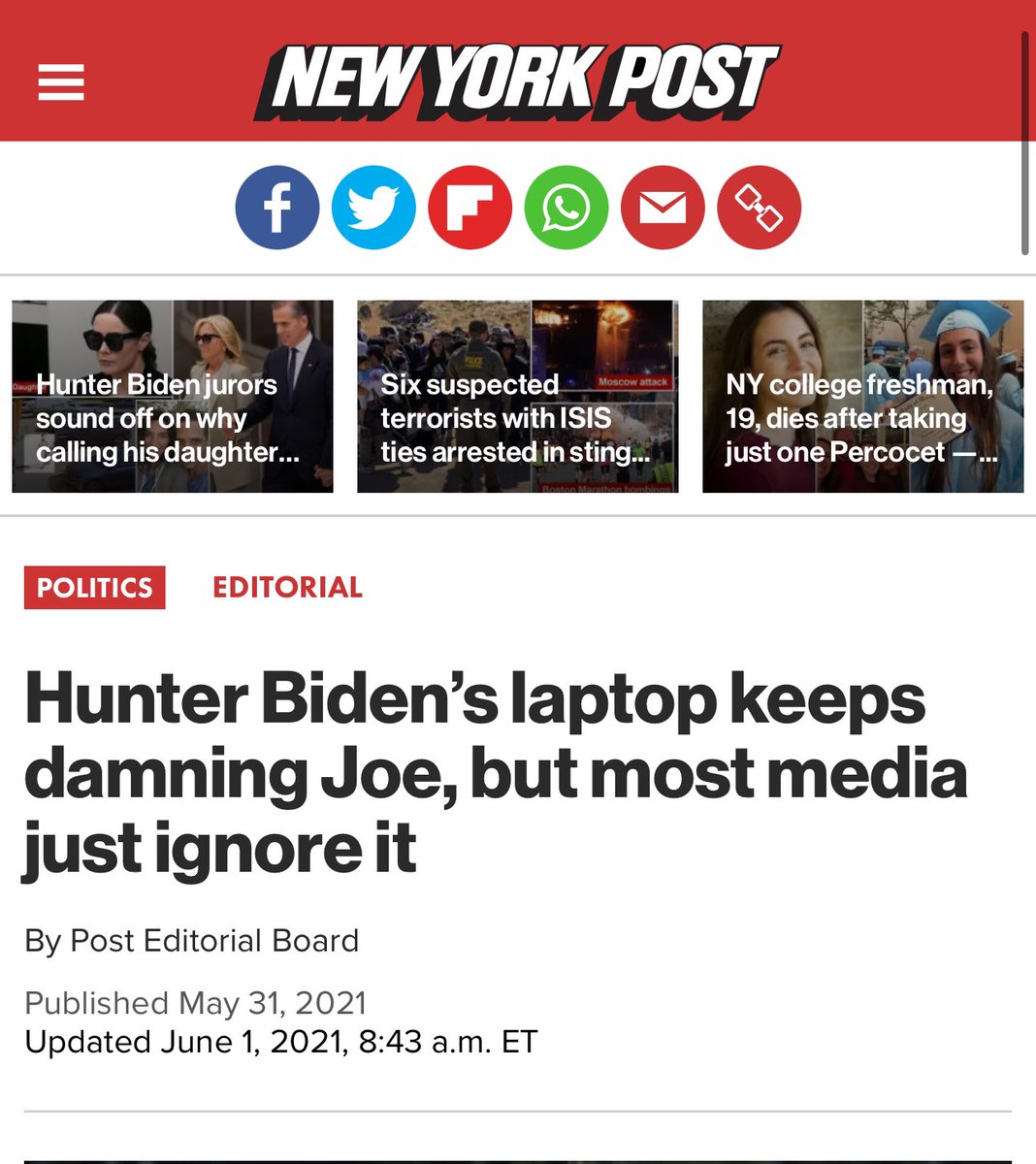


There were other commendable examples of journalism, such as when @dcexaminer (h/t @AndrewKerrNC and @JerryDunleavy) worked to authenticate the laptop in 2022.
It was entirely legitimate.


It was entirely legitimate.


What wasn’t legitimate, as the @FreeBeacon (h/t @ChuckRossDC) reported in 2023, was the campaign to discredit NY Post’s scoop.
It was all orchestrated by the Biden campaign to obfuscate damaging news ahead of the election.


It was all orchestrated by the Biden campaign to obfuscate damaging news ahead of the election.
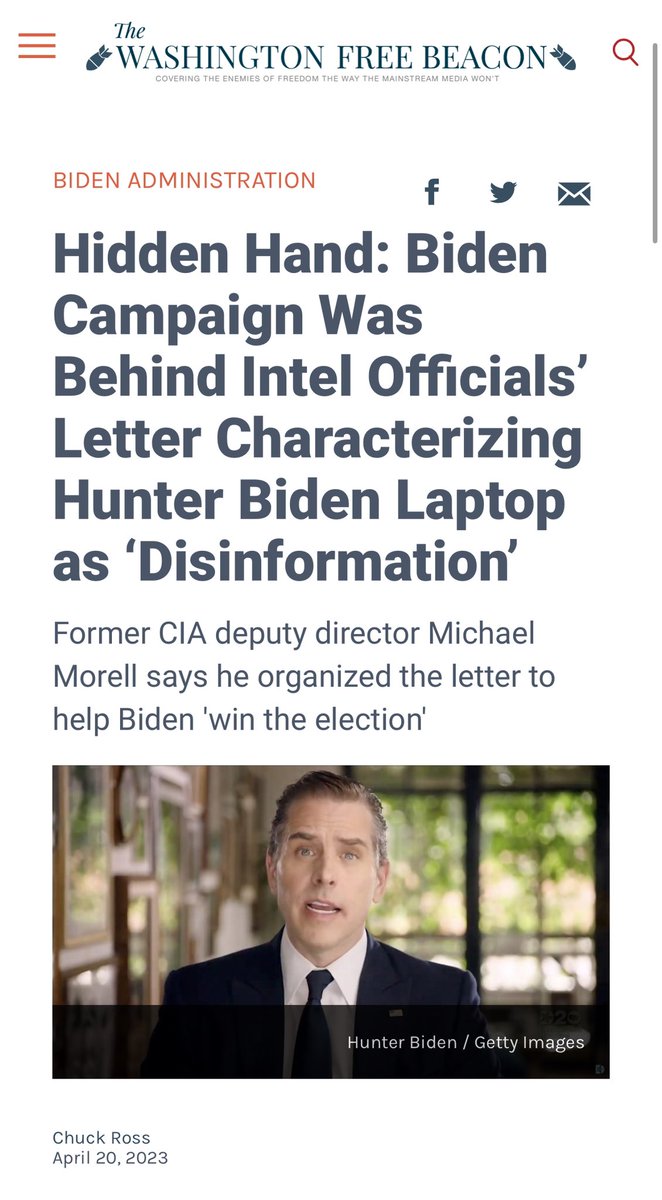

This year the laptop and its contents have repeatedly made headlines. Biden’s own DoJ relied on it to bring charges against Hunter. (H/t @NRO) 

And then, the ultimate reversal came this week, when the DoJ introduced the laptop—belonging to Hunter Biden, not manipulated by anyone—in the case in which Hunter was found guilty.
Quite the turn for the narrative. (@FoxNews again)


Quite the turn for the narrative. (@FoxNews again)


But it worked. Biden got elected. One poll suggests that, if voters had known the details of the laptop and coverup, that might not have come to pass.
As NYT has written about previously, that shouldn’t be surprising. People care deeply about corruption.




As NYT has written about previously, that shouldn’t be surprising. People care deeply about corruption.




I know the term “election interference” is a contested one these days, but do you have a better description for what the media did here to aid the Biden campaign?
As I said in my newsletter this morning, we’re forgetting why this story matters. (Link is in bio to subscribe). 

There’s more to this one—it won’t surprise you—than I could fit in a thread. Full piece is on my newsletter, @Holden_Court open.substack.com/pub/drewholden…


@Holden_Court The irony in all of this is that the mainstream media ended up doing exactly what they accused @nypost of doing: running with a narrative that fit their priors, absent evidence, to impact an election.
I wonder if they realize. I fear they may not.
I wonder if they realize. I fear they may not.
If you enjoyed this thread, I would really encourage you to subscribe to my newsletter.
This format is kinda my thing, and the pieces I do focus on these sorts of issues, that I fear are too often overlooked or forgotten.
Link to subscribe is here: open.substack.com/pub/drewholden…

This format is kinda my thing, and the pieces I do focus on these sorts of issues, that I fear are too often overlooked or forgotten.
Link to subscribe is here: open.substack.com/pub/drewholden…

• • •
Missing some Tweet in this thread? You can try to
force a refresh



















